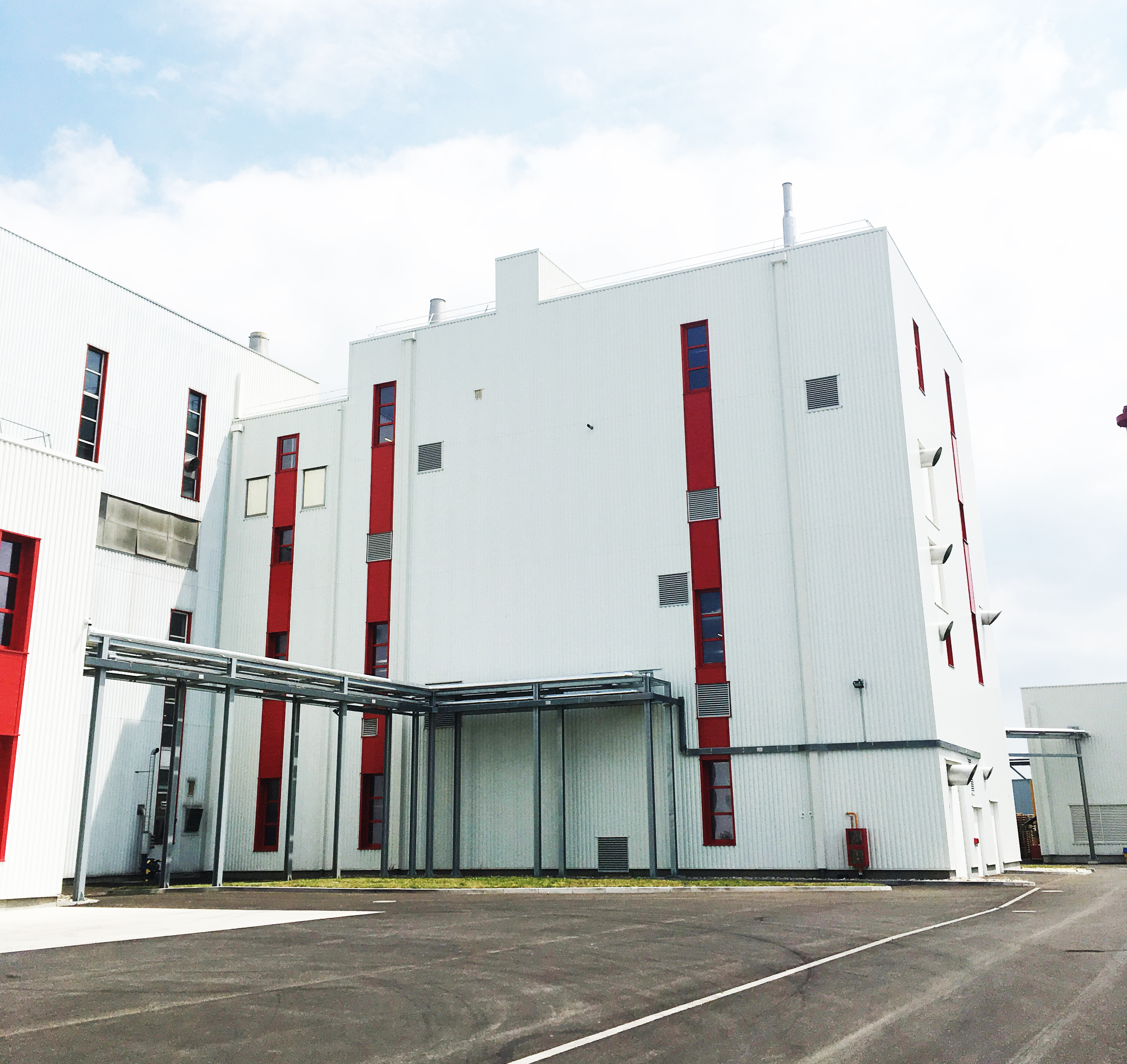
- Industry news
Industry news
- Category news
Category news
- Reports
- Key trends
- Multimedia
- Journal
- Events
- Suppliers
- Home
- Industry news
Industry news
- Category news
Category news
- Reports
- Key trends
- Multimedia
- Events
- Suppliers
Lesaffre eyes fermented foods resurgence, doubles capacity at Biospringer plant

02 Jul 2018 --- Lesaffre is targeting opportunity for fermented ingredients such as yeast, amid a reinvigorated interest in the use of these age-old processes. Growing global demand for natural and clean label ingredients is further boosted by an overarching theme towards salt and sugar reduction. These market dynamics have led the company to expand production, including at a key French facility, but future expansion will likely come in developing markets.
“What we see is continuous fragmentation of the end consumer market,” Antoine Baule, Lesaffre’s CEO tells FoodIngredientsFirst in a detailed interview. “You have new trends: organic, vegan, free-from and many more. In general, one very favorable trend which is some common denominator is about having natural products and simple recipes. We are precisely in this domain, where we are focusing on fermentation.”
Baule notes fermentation as probably the oldest food processing technique known to mankind. “It has been used to keep food good for longer and to facilitate their digestion too. We are really at the heart of natural ingredients with fermentation. To us, it is both a very good opportunity and a challenge, as there are many needs to address,” he says.
Innova Market Insights, which tipped “Positively Processed” as one of its key trends for 2018, notes that with fermentation seen as a natural and authentic process, new product development and heightened consumer awareness have combined to bring a raft of traditional products back to the fore, often extending them out of particular geographical regions and specialty markets into the mainstream on a more global basis. Sourdough, for example, is enjoying a resurgence amid this theme towards ancient or traditional fermentation methodologies. “Sourdough is a very traditional way to ferment bread. There are many other applications that we work on such as the new yogurts and kefir,” Baule explains.

French-headquartered Lesaffre, which has a €2 billion turnover is a global reference in the field of yeast and breadmaking. In fact, the company claims that 1 bread out of 3 in the world is made with their yeast. The company operates 63 production sites around the world and 49 Applied Science Centers. It recently doubled the capacity at its’ Biospringer [Lesaffre Culinary Solutions] Strasbourg facility. This unit produces yeast extract for food markets, biotechnologies and animal health and as a result of this expansion is company’s largest yeast facility.
This investment plan underpins Biospringer’s intention to expand its operations and develop a more extensive product range. The new equipment (autolysis tanks, washing array, spray-drying tower, silo, etc.), which has been operational since the end of 2017, is said to support this ambition and enhancing the service offered to Biospringer’s customers worldwide. Strasbourg and Biospringer have a long shared history, as the company has had a site there for around 25 years. Early in 2017, Lesaffre acquired the Sensient entity, a specialist in brewer’s yeast extracts, thus enhancing Biospringer’s expertise in this fast-growing market.
“The expansion is meant to follow the growth of our yeast extracts market. These plants supply mostly Europe and the Middle East and Africa regions. We are following the growth in the use of these yeast extracts which are natural ingredients which help in the taste of food. It also has uses in salt or sugar reduction in recipes,” Baule says.
In February 2018, Lesaffre acquired Alltech’s yeast extract facility in Serbia. The business was renamed Biospringer RS and continues to produce baker’s yeast for the Serbian market as well as yeast extracts for food and animal feed industries. As a result, the company now operates eight facilities established around the world: Western and Eastern Europe, China, the US and Brazil.
Moving forward, Baule says that further acquisitions can be expected, although he remained coy on specific targets for growth. “We have been growing quite fast in the last years through a mixture of organic growth and external acquisitions, so we plan to continue doing so in the coming years,” he says. Growth will likely come in developing markets. “In general the developing countries market are growing faster than Europe or North America because the middle class is expanding very fast in these regions. Most of our products fit the needs of the middle and upper class. We will enhance our presence in these developing countries,” he says.
When asked about the biggest growth areas for yeast extracts, Baule notes strong reformulation potential. “Many recipes use yeast extracts and when you have taste enhancement or sugar or salt reduction, you have a lot of studies around these aspects. We have to help our business to be involved in core research with our customers. We have five culinary centers in the world now and are actively working with them on new recipes. The design of new extracts is meant to better suit the evolution of needs,” he says.
Lesaffre employs some 10,000 people around the globe, 550 of whom work in R&D. “We have been developing our knowledge and technology around fermentation with yeast for bakery. This has helped us to develop our skills in microbiology, molecular biology and the cultivation of yeast. Just like you have many varieties of wheat, and we are in the same way: selecting strains in a natural fashion to find the best candidate for particular applications. This led us to many diversifications in the applications of yeast,” he says of innovation platforms.

expanded Strasbourg plant.
Bioinformatics and testing on artificial gut are key research platforms for the company. “We have a very strong historical yeast platform in terms of biotechnology in general. We have built bacteria platforms and we have the manufacturing experience in bacteria fully too. We have two major sites manufacturing bacteria and we also have some experience in the production of fungi. We are now exploring bioinformatics, artificial guts and aspects like that which could accelerate the pace. We have many application fields including fermentation, taste and pleasure, animal and human and plant health. Fermentation is at the heart of all these too,” notes Baule.
Lesaffre has been working on yeast as a probiotic for many years and their Human Care business offers ibSium, a unique and patented probiotic yeast, selected among thousands of proprietary strains and registered with the French National Collection of Microorganism Cultures as Saccharomyces cerevisiae CNCM I-3856. The ingredient has an approved health claim in Canada, for example, which reads as follows: “Helps to reduce abdominal pain and discomfort associated with irritable bowel syndrome (IBS).”
For Baule, the understanding and exploration of the microbiome is just emerging. “We have an immense period of discovery before us. You can think of metagenomics and bioinformatics. It is about achieving a better understanding of the composition of our microbiota. It is about establishing the conditions affecting this microbiota and conditions leading to diabetes and others. This is an immense domain. We also have a huge domain in the identification of the strains inside this microbiota. Perhaps some could be isolated as beneficial probiotics. A lot of research is being done with regards to disease and microbiota regulation, including conditions such as bulimia and anorexia. These areas are just beginning to be explored.”
Market dynamics coupled with strong research and innovation platforms, mean that despite the age-old history of yeast and yeast extracts, there are numerous unexplored areas that could be adopted for tomorrow’s innovative products.
You can listen to a podcast interview with Antoine Baule here.
By Robin Wyers











